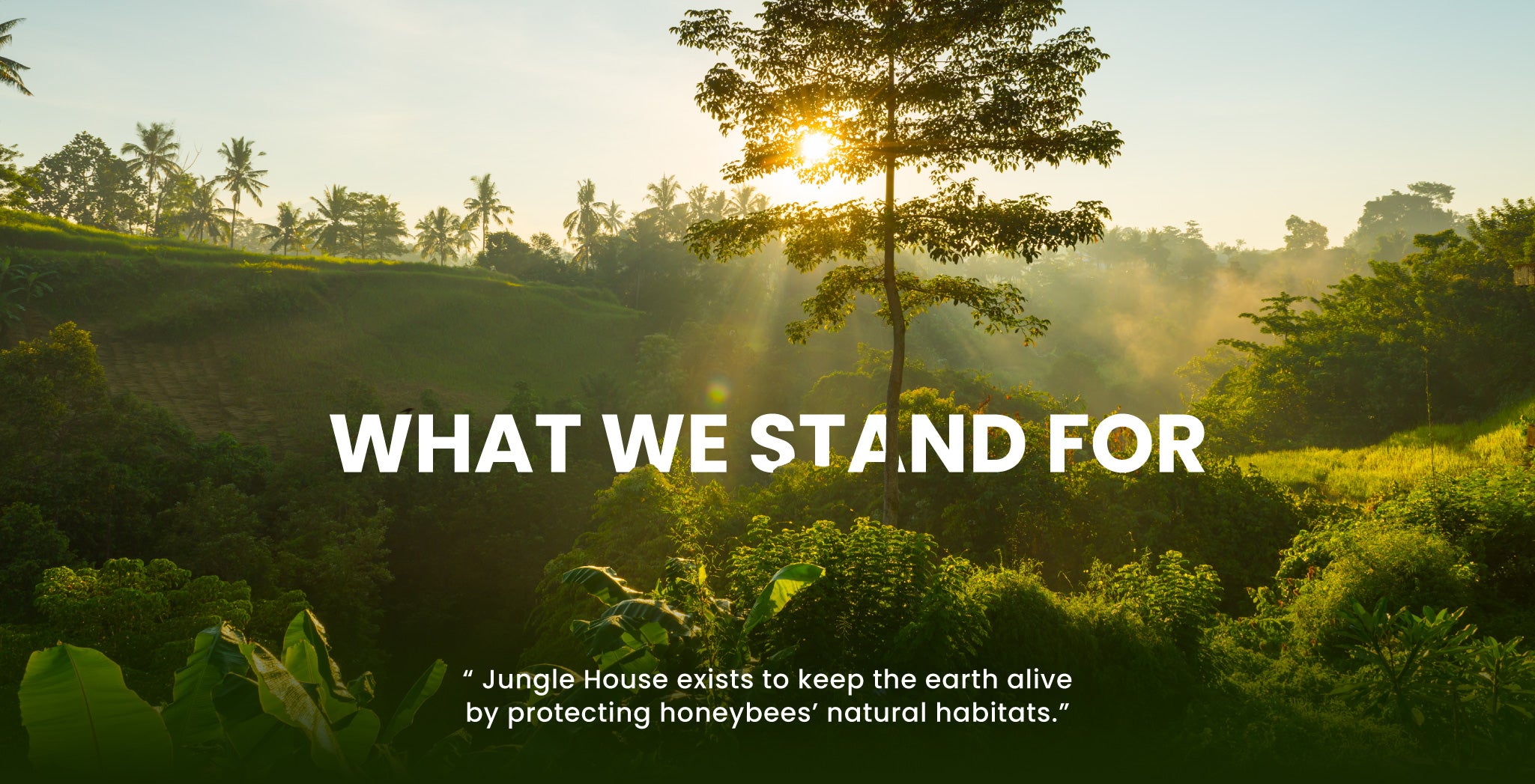-
Honeybees are small but mighty workers whose actions ultimately help nourish all life on earth. They pollinate 80% of the crops we use for food across the world; that’s one third of the food that people like you and me consume on a daily basis! In the vast majority of cases, crops will not develop the fruits and vegetables we know and love unless they are first pollinated.
So, you get the picture: no bees means no food. Or, at the very least, no bees mean a much scarcer global food supply.
Though humanity’s constant innovation and progress forward is something to celebrate, it does present some significant challenges for our helpful little pollinators. As land is cleared to make room for homes and businesses, the amount of land on which honeybees can build their hives shrinks. In addition, many farmers use pesticides, herbicides, and fertilizers that – though they protect the crops themselves – can harm the honeybees that come into contact with them. This puts honeybees in a critical situation; with limited access to safe food sources and places to call home, honeybees face extinction. That spells bad news for the rest of us.
Hope is not lost, however! This is the part where we come in.
-
Honeybees need safe places to call home where they have access to sufficient pollen and nectar and are far away from the chemicals that wreak havoc on their sensitive systems. Jungle House partners with local bee farmers and hunters to create spaces where honeybees can thrive and continue to support the health of the jungle ecosystem.
We love this planet, and we bet you do, too. With your support, we will work tirelessly to support the sustainability of life on this wonderful planet we all call home.
We often think back to the story of Noah’s Ark – in this story, God tasks Noah with the responsibility of protecting humanity from total extinction. In much the same way, we view protecting honeybee populations as a means of building an ark for humanity, so to speak. It is through this work that we seek to bring glory to the God that has blessed us with such a beautiful world to experience.
Brand Mission
At Jungle House, our mission is to build safe houses for local honeybee populations – one hive at a time. Every honey product you purchase from us supports us in caring for and improving the lives of these honeybees, their keepers, and their environment. In practice, this looks like:
-
Advocating for the protection and preservation of existing wild honeybee habitats.
-
Working with local honeybee farmers and hunters to spread knowledge of responsible harvesting practices and pesticide-free farming.
-
Serving the indigenous beekeeping community through skill-sharing and upskilling initiatives, as well as protecting their interests by paying fair wages and ensuring safe working equipment and environments.
BRAND PROMISE
Jungle House offers 100% natural, raw, and organic honey, ethically sourced from native beekeepers who practice sustainable beekeeping. We strive to inspire hope and empower people to make a positive impact on the world.
FAQs
HOW IS RAW HONEY HARVESTED?
Ethical harvesting practices ensure that bee health is prioritized, involving the careful extraction of honey from the comb while ensuring bees are left with sufficient stores for their own needs.
WHAT IS THE ENVIRONMENTAL IMPACT OF HONEY PRODUCTION?
Sustainable beekeeping has a positive environmental impact, contributing to pollination, biodiversity, and the health of ecosystems, highlighting the importance of supporting responsible honey production practices.
HOW CAN CONSUMERS ENSURE THEIR HONEY IS ETHICALLY SOURCED?
Consumers are encouraged to support local beekeepers and brands that transparently adhere to ethical and sustainable beekeeping practices, thereby contributing to the welfare of bee populations and the environment.
WHAT IS THE DIFFERENCE BETWEEN RAW HONEY AND ORGANIC HONEY?
Organic honey is produced in accordance with stringent organic standards, focusing on the bees' forage areas, whereas raw honey emphasizes minimal processing, with both sharing an emphasis on natural purity and quality.
HOW DOES BEEKEEPING IMPACT BEE POPULATIONS AND BIODIVERSITY?
Responsible beekeeping practices significantly contribute to the preservation of bee populations and enhance biodiversity through pollination, vital for the health of natural ecosystems.



